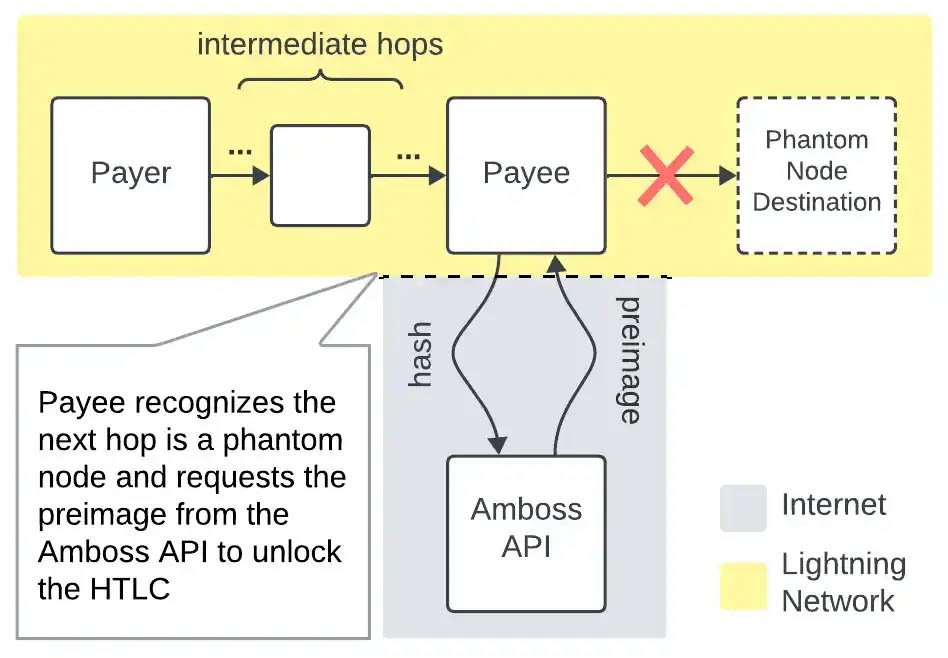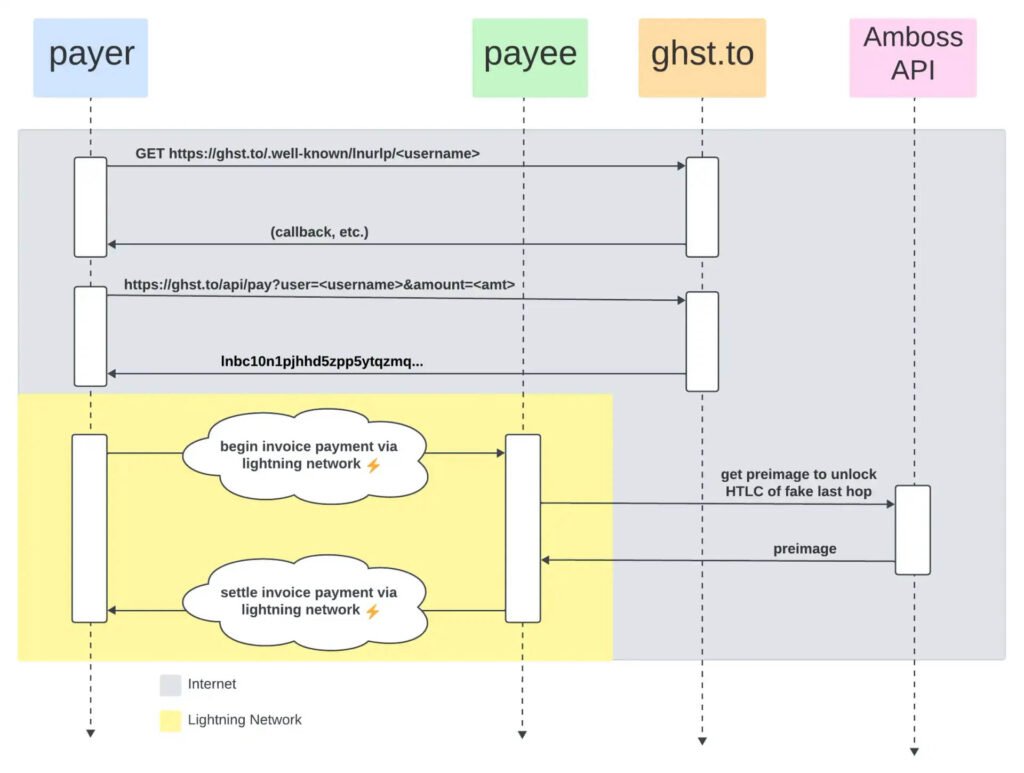In the fast-evolving realm of Bitcoin’s Lightning Network, Amboss unveiled a groundbreaking innovation, promising to reshape the landscape of transactions: Ghost Addresses.
Lightning Network’s Evolution
The Lightning Network, designed atop the Bitcoin blockchain, seeks to enable rapid, cost-effective micropayments through bi-directional payment channels. Over time, various advancements have surfaced, simplifying payment processes and user experiences.
Now Amboss Technologies has unveiled Ghost Addresses, a revolutionary concept aimed at empowering Lightning Network users. These addresses merge the ease of Lightning Address formats with advanced Lightning Network features, allowing for direct, self-custodial payments.
What Are Ghost Addresses?
Ghost Addresses are akin to a personalized email address for Lightning transactions. Users receive payments directly into their self-custody Lightning node using a unique Ghost Address, like username@ghst.to. The beauty lies in its simplicity – a static, reusable endpoint streamlining the payment process without requiring additional infrastructure.
This new solution leverages Phantom Payments, a sophisticated routing technique ensuring secure and efficient transactions. By incorporating Phantom Nodes and Payments, these addresses offer a seamless solution. They enable users to receive Lightning payments without navigating centralized intermediaries, enhancing security and privacy.

LNURL simplified Lightning Network payments by offering a URL to generate invoices, reducing the need for repetitive BOLT 11 invoices. It was followed by André Neves of ZBD. Lightning Addresses, following LNURL, introduced an email-like format, enhancing accessibility for new users.
The Impact on Lightning Network Users
For those operating their Lightning nodes, this new development marks a game-changer. No longer reliant on custodial third parties or public Lightning Address servers, users gain autonomy and security over their transactions. With a reusable Ghost Address, payments become as straightforward as receiving an email.
How Ghost Addresses Work
When a payer seeks to send Bitcoin to a Ghost Address, they initiate a request to the ghst.to server, receiving a Lightning invoice. This invoice directs the payment through a Phantom channel, allowing the destination node to intercept the payment, ensuring secure transactions directly to the intended user’s node.

Existing Alternatives
Existing alternatives, such as self-hosted Lightning Address servers or third-party solutions, have their limitations, often due to complexities or potential vulnerabilities. Ghost Addresses, with their efficiency and security, offer a compelling alternative.
Amboss’s Vision for Ghost Addresses
Jesse Shrader, Amboss’s CEO, emphasizes the trustless spirit of Bitcoin. He stated that Ghost Addresses aim to break reliance on centralized Lightning wallet providers, safeguarding against potential shutdowns and enhancing fund accessibility and privacy.
Ghost Addresses, integrated with Amboss’s API, are compatible with various Lightning Network implementations. Thunderhub, currently supporting Ghost Address payments, employs the LND implementation. While randomly generated Ghost addresses are free via an Amboss account, customized addresses necessitate a subscription.
Ghost Addresses offer a more private alternative compared to custodial Lightning Addresses, maintaining confidentiality around payment amounts. However, further privacy enhancements would require self-hosted Lightning Address servers, adding another layer of complexity.
The Future of Lightning Network Transactions
In a world where custodial wallets pose risks of regulatory shutdowns, Ghost Addresses emerge as a beacon of self-custodial security. As Lightning Network continues to expand, innovations like Ghost Addresses pave the way for a more accessible, secure, and streamlined transaction experience.
More on Amboss Technologies
Amboss stands as a leading provider of payment operations solutions for the Bitcoin Lightning Network. Leveraging machine learning, Amboss offers optimized routing, decentralized finance tools, and operates Magma, a prominent marketplace for lightning liquidity and non-custodial yield.










